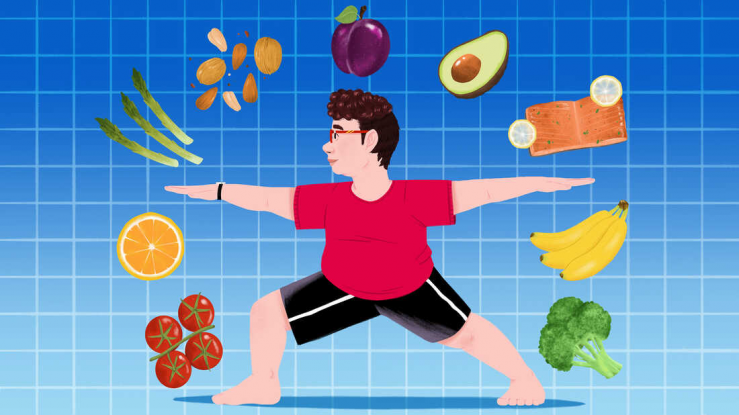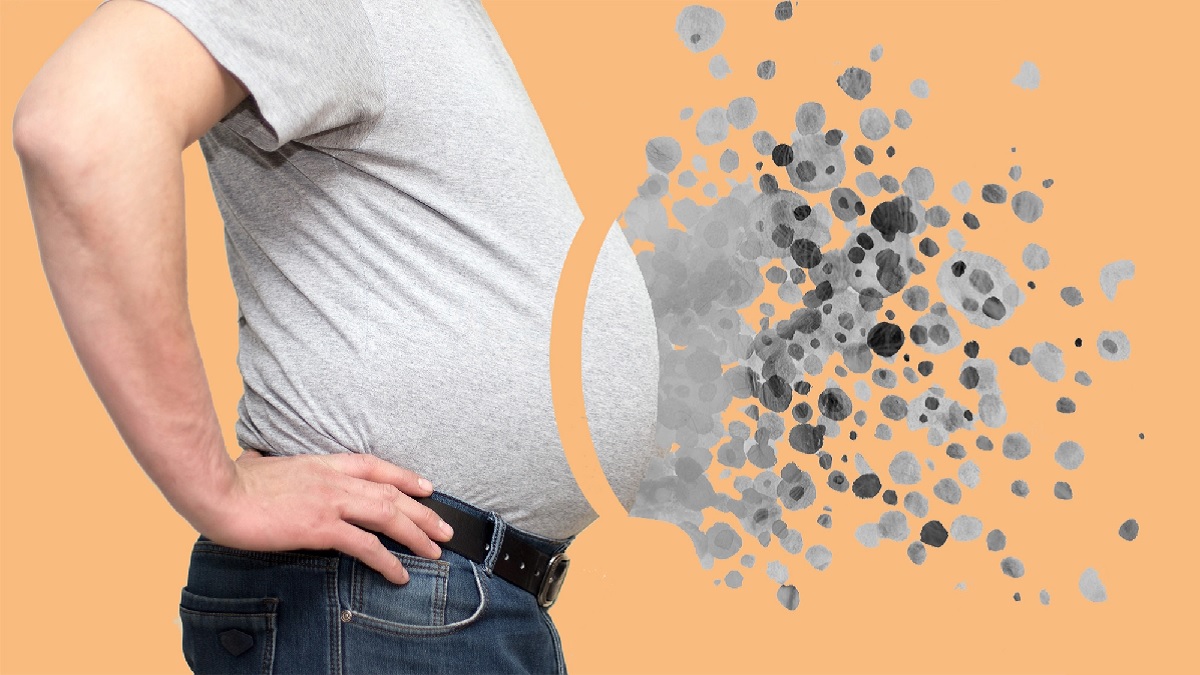Losing weight is indeed one of the most arduous tasks ever, but the fact is the real struggle starts when you have to keep those extra pounds off. Maintaining weight is thought to be harder than losing it. There are many ways to lose weight, but to maintain it there is only one way that is discipline and consistency. Maintaining weight in a longer run largely depends on the method used to lose weight. Weight lost through healthy diets are easier to maintain because most of the healthy/diets include all the food groups and are less restrictive, thus helping an individual to carry on with the routine for longer periods of time. To keep the undesired fat off the body, it is important to understand where does the lost weight goes.
Mechanism of weight loss
When calorie intake exceeds the daily caloric requirement of a person, the excess calories are stored in the form of fat cells or triglycerides in the body which preserve the energy for future use. When you continue to consume extra calories, they result in fat surplus which causes obesity. In order to lose weight you have to eat in calorie deficit, which means you have to eat fewer calories than required by the body. Eating in calorie deficit for a few weeks or months accelerate the process of fat loss. Since the body falls short of the carbs energy sources and it begins to consume fat cells as energy source and so the process of fat loss starts. Eating just a 500 calories lesser than the required calories can be sufficiently effective to reduce weight.
Read More: The Science of Weight Loss – About Pakistan
Diet and exercise promotes fat loss
Eating a diet rich in nutrients and low in calories when combined with a good exercise regimen, help you lose weight rapidly. While exercising body uses glycogen as a source of energy, but after 30 to 60 minutes of aerobic activities body starts using fats as a direct source of energy.
Where does it go?
When you continue to eat in caloric deficit and exercise regularly your body begins to draw energy from the internal source that is stored fats. Fats are stored in the cells called adipocytes and it is stored in the form of a compound called triglycerides. Triglycerides contain carbon, hydrogen and oxygen when these triglycerides are metabolized they result in production of carbon dioxide, water and energy. The carbon dioxide produced is exhaled out of the body through lungs during the process of breathing, the water is lost through urine, sweat, tears or other body fluids and the energy is used to carry out the cell’s normal function. The equation for triglycerides metabolism can make it simple for you:
C55H104O6 + 78O2 è 55CO2 + 52H2O + Energy
Now you understand how cardio workout helps you in burning fat. Cardio workout improves the ability of muscles to oxidize fats and the by-product (CO2) is exhaled through breathing. Thus disposal of these by-product increases greatly during exercise through sweating and breathing.
Read More: Keto Diet vs Atkins Diet: How They Are Similar And Different? – About Pakistan
How to maintain weight?
When you lose weight, the fat cells shrink in size, but rarely decrease in number. If you continue to exercise and eat healthy the fat cells won’t store the excess energy and weight is not gained. However, if you do not make a deliberate effort, and start eating more than the body requirements these fat cells can increase in size as well as in number and all the lost weight bounces back. More often after strict fad diets the body starts to conserve energy by slowing down the metabolism because the body senses it as an emergency or famine like situation and it prepares body to combat fuel shortage, the process is called as metabolic adaptation.

So as soon as you start eating normal food again the weight comes back. So to maintain weight in a healthy range it is advised to lose weight through natural diet plans and don’t rush to lose it overnight. Losing 1 pound per week is considered healthy weight loss with building muscle mass simultaneously. Eat in moderation to stay within the caloric limit so that excess energy from food is not stored. Avoid weight cycling also called as “yo-yo dieting” which means losing and regaining weight again and again. This can result in permanently slowing down your metabolism and making it difficult for you to lose or even maintain weight.
Read More: Bland Diet: What To Eat And What To Avoid? – About Pakistan


















